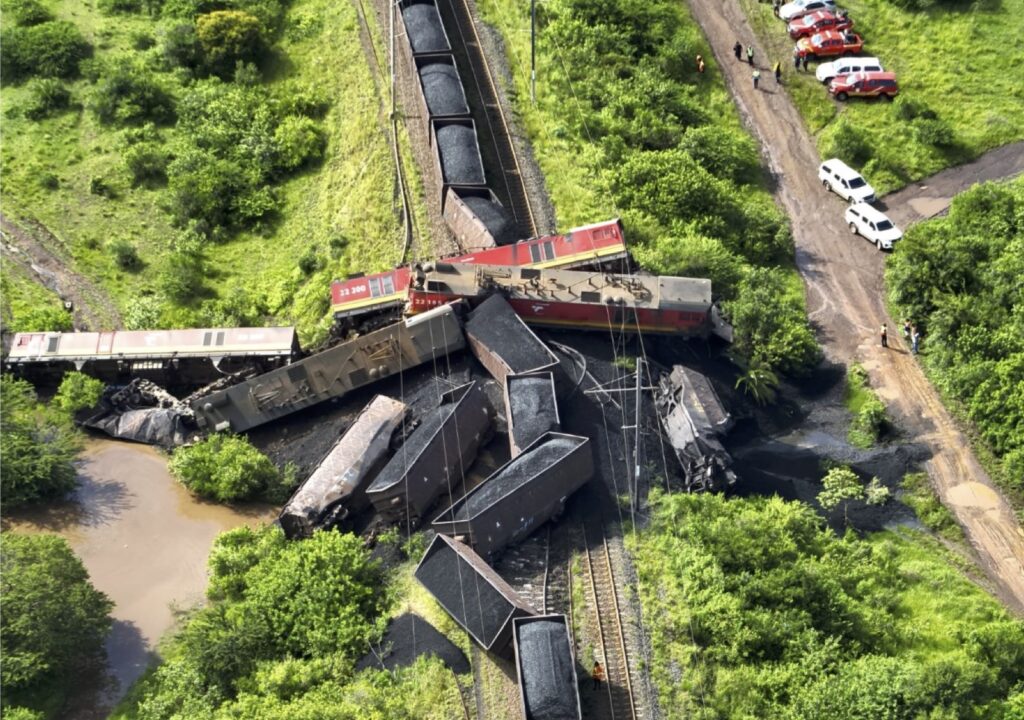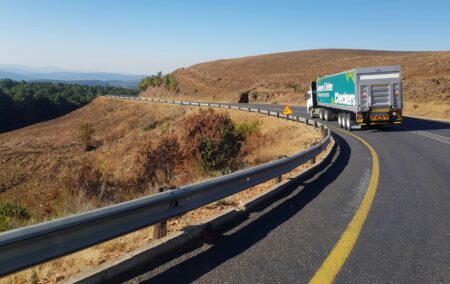Infrastructure, whether it be railways, ports, or roads, is vital to an economy. Just as a body cannot survive without healthy veins and arteries to move blood around, a country cannot survive if people and goods are hampered from moving.
And South African infrastructure is failing. Reports and studies from various bodies bear this out.
For example, South Africa’s ports are ranked worst in the world, according to the 2023 World Bank Container Port Performance Index. Gqeberha is South Africa’s best-performing port at number 391, while Cape Town is the country’s worst-performing port at number 405.
Rail transport doesn’t fare much better: cable theft and vandalism have wrecked our rail infrastructure to the point where it can’t be relied upon.. This has an impact on transport costs, as people move to use road transport rather than rail. Road transport is more expensive than rail, and it has other negative effects on the economy. Roads are damaged by trucks transporting goods which could have been transported by train, but for the failure of rail infrastructure.

Consider the aftermath of the above image, from an accident in January. The coal most likely had to be discarded as having been contaminated by soil and rocks. This was all because of a power outage. That coal could have been used to keep the lights on.
In 2021, dairy giant Clover announced that it would close its factory at Lichtenburg in the North West because of failing service delivery in the chronically incompetent Ditsobotla Municipality. Chief among its reasons were “damaged roads, power outages and lack of water”. The mayor denied that Clover’s decision was related to service delivery.
Letting public infrastructure decline to the point of no return only hurts local communities, their economies, and people’s livelihoods. How else will they put food on the table if their breadwinners aren’t employed, or their employers can’t operate due to failing infrastructure?
Neglect leads to distress
The Auditor-General, Tsakani Maluleke, made the point clear in her presentation of the Local Government Audit Outcomes for 2022/23, using infrastructure as an example:
“The budget allocation for repairs and maintenance of infrastructure was inadequate. When infrastructure maintenance is neglected for a prolonged period, this increases the cost to upgrade or replace the infrastructure, which is even more difficult to fund.”
South Africa will continue on this path if our municipalities lack the skills, capacity, and the knowledge to build up and protect institutions from unscrupulous looters and corrupt individuals.
Local politicians who are at the coalface of service delivery aren’t trying to provide leadership and guidance to civil servants like engineers, technicians, or even contractors.
Municipal employees can only work if municipalities have the resources and the infrastructure to operate and provide an environment conducive to skills development, job creation and economic growth.
Sound governance
The City of Cape Town is the only metropolitan municipality in the country to get a clean bill of health from the Auditor General, indicating good financial management, which boosts service delivery.
A clean audit is an endorsement of good practice; those annual financial statements of governments reveal where and how ratepayers’ (and taxpayers’) money is spent. The expenditure can be tracked down to the last rand (or cent, if you want). It means residents can trust that the money spent is going where it is meant to be going.
Governments that cannot produce the statements on demand effectively cannot prove that facilities are well-run or financially sound enough for investors to put their money into, (even if they say they are.)
Hook, line and business sinker
Keeping in mind that ports and rail transport aren’t municipal competencies, the failure of Transnet’s National Ports Authority and its Freight Rail subdivisions has wide implications for businesses of all sizes and the communities in which they operate.
For businesses in the mining and agriculture industries, the situation can be even worse. These industries rely heavily on rail and ports to get their products overseas. This means they are on the hook for transport costs that eat further into their profit margins, which are already battered by poor water infrastructure, crumbling roads, and loadshedding.
The #WhatSACanBe solution
We should allow businesses in these labour-intensive industries to take ownership of the infrastructure that they need.
A 1995 paper published by the World Bank noted that “increasingly severe budget constraints and the demand for adequate port infrastructure” pressured South East Asian governments into public-private partnerships for their ports. They are now among the best-performing ports in the world.
Back home, Transnet has partnered with International Container Terminal Services (ICTSI) to “develop and upgrade” Pier 2 at the Durban Container Terminal.
However, Transnet’s recent move to “freeze” public-private partnerships surrounding the Ngqura terminal because it “wasn’t what the market wanted” is exactly why the entity should be efficiently run.
Government agencies must consider the risks, challenges, strengths, and weaknesses of public-private partnerships, not only for themselves, but for businesses as well.
Are they willing to forgo investment and all its benefits because of outdated ideology? I certainly hope not. Cyril Ramaphosa admitted that the private sector creates jobs. The only way it creates jobs is by running successful businesses that deliver quality goods and services, and it depends on efficient infrastructure.
Giving private companies a stake in one of the core parts of the supply chain can promote not only business efficiency, but the attractiveness of South Africa as a destination willing and able to attract investment. The participation of the business sector can help the GNU achieve the economic growth and job creation it knows the country needs.
The latest #WhatSACanBe paper can be read here.
[Photo: by Tiry Nelson Gono on Unsplash. Insert: X/@ewnreporter]
If you like what you have just read, support the Daily Friend.

